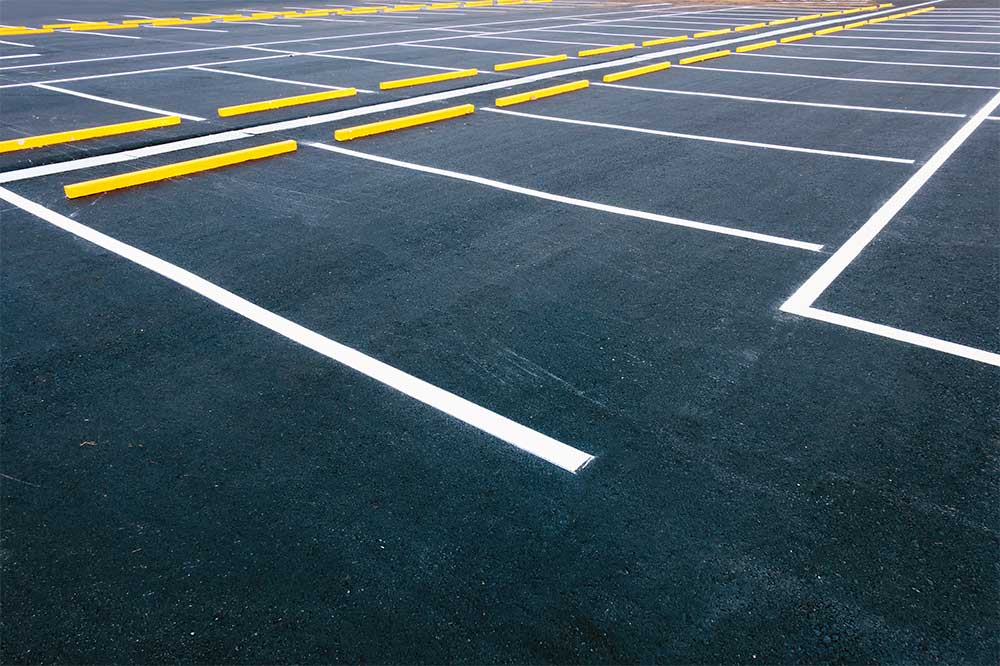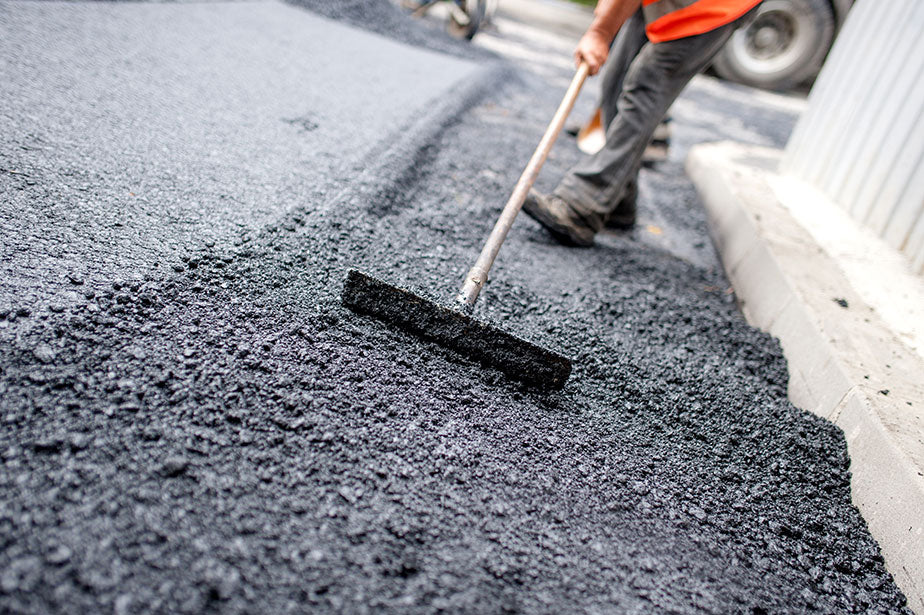Exploring the Ecological Advantages of Warm Mix Asphalt
The application of Warm Mix Asphalt in infrastructure jobs presents an engaging instance for sustainable growth and ecological stewardship. By delving into the detailed details of its production processes and the cutting-edge use of recycled materials, a deeper understanding arises of how this technology exceeds simple surface applications. The ecological advantages of Hot Mix Asphalt prolong far past preliminary impacts, using a nuanced perspective on exactly how this product can pave the method for a greener future.

Minimized Greenhouse Gas Emissions
Hot Mix Asphalt manufacturing provides a considerable reduction in greenhouse gas emissions contrasted to various other pavement materials. The manufacturing procedure of Warm Mix Asphalt involves warming the combination of aggregate and asphalt binder to high temperatures. This procedure calls for much less energy compared to the production of alternate pavement products, causing reduced greenhouse gas emissions. In addition, the use of recycled products in Hot Mix Asphalt additionally adds to minimizing its environmental influence. By integrating recovered asphalt pavement and recycled asphalt shingles into the mix, the need for virgin materials is minimized, leading to power financial savings and decreased emissions connected with removal and handling.
Researches have actually shown that Hot Mix Asphalt pavements have a smaller sized carbon impact over their life process contrasted to other pavement choices. The longevity and recyclability of Hot Mix Asphalt better improve its environmental advantages by decreasing the need for constant upkeep or replacement, thus preserving sources and minimizing emissions connected with restoration activities.
Energy Efficiency and Conservation
The production procedure of Warm Mix Asphalt not just minimizes greenhouse gas emissions but also contributes significantly to energy efficiency and preservation initiatives. Energy efficiency is a crucial benefit of Warm Mix Asphalt manufacturing compared to other pavement types. The procedure involves warming the products at heats to develop the asphalt mix, which needs much less power than alternate methods. In addition, the ability to recycle and reuse asphalt sidewalk better boosts power conservation. By including reclaimed asphalt pavement (RAP) right into new mixes, the sector saves power that would certainly have been needed to generate completely new materials. In addition, the resilience of Hot Mix Asphalt lowers the frequency of maintenance and reconstruction, resulting in long-term power financial savings. This long life minimizes the energy-intensive processes associated with constant fixings and replacements. In General, Warm Mix Asphalt sticks out as an ecologically friendly choice that prioritizes power effectiveness and preservation throughout its lifecycle.
Sustainable Pavement Solutions

One trick aspect of lasting sidewalk solutions is using recycled materials such as redeemed asphalt sidewalk (RAP) and recycled asphalt shingles look at more info (RAS) By incorporating these materials right into the asphalt mixtures, the demand for virgin sources is lowered, leading to lower energy consumption and greenhouse gas exhausts throughout production. Furthermore, the reuse of these products aids divert waste from garbage dumps, contributing to a much more round and lasting economy.
Furthermore, lasting pavement options focus on enhancing sidewalk design to improve performance and long life. Techniques such as cozy mix asphalt (WMA) and stone mastic asphalt (SMA) enhance the sturdiness and durability of pavements, decreasing the requirement for constant repairs and replacements. By executing these ingenious strategies, infrastructure designers can produce pavements that not only satisfy high-performance criteria but likewise decrease their ecological impact.
Minimized Environmental Effect
With an emphasis on sustainability and eco-conscious practices, sidewalk services are designed to minimize the ecological influence click this of building and upkeep procedures. Warm mix asphalt, particularly, offers several benefits that add to reducing the total ecological footprint of road framework. One vital element is the recyclability of asphalt, which can be recycled numerous times without endangering its quality. This particular aids in conserving natural deposits and lowering the quantity of waste sent out to garbage dumps.
Additionally, the production of hot mix asphalt sends out reduced levels of greenhouse gases compared to various other pavement products, making it a more eco-friendly option. The energy effectiveness of asphalt plants has additionally boosted over the years, causing reduced fuel intake and lower discharges. Additionally, the smooth surface area of hot mix asphalt decreases rolling resistance for vehicles, leading to reduced fuel consumption and reduced air contamination from lorry exhausts.
Contribution to Environment Change Reduction
Hot mix asphalt plays an essential function in mitigating climate adjustment via its sustainable residential properties and lowered environmental impact. One substantial contribution to environment adjustment reduction comes from the energy performance of warm mix asphalt manufacturing. Compared to various other sidewalk alternatives, the production procedure for hot mix asphalt consumes less power and emits lower degrees of greenhouse gases, therefore lowering its total carbon impact.
In addition, hot mix asphalt's capability to reflect sunlight, referred to as albedo, aids in reducing city warmth island impacts. By decreasing heat absorption and retention, warm mix asphalt pavements can reduce the need for air conditioning in metropolitan locations, subsequently lowering greenhouse gas emissions connected with energy usage for cooling down purposes.
Additionally, the longevity and recyclability of hot mix asphalt even more improve its environment adjustment reduction capacities. Regrading. The lengthy life-span of asphalt pavements reduces the demand for regular repairs or substitutes, eventually decreasing the carbon discharges linked to road upkeep tasks. The recyclability of asphalt materials decreases the demand for virgin sources and decreases the ecological effect of sidewalk construction, lining up with lasting techniques for climate change mitigation.
Verdict
Finally, the ecological benefits of Warm Mix Asphalt demonstrate its substantial payment to decreasing greenhouse gas discharges, conserving power, and decreasing environmental effect. This lasting pavement option aligns with climate modification mitigation efforts, advertises source preservation, and enhances infrastructure growth. By making use of recycled products, energy-efficient manufacturing procedures, and durable style, Hot Mix Asphalt plays an essential role in promoting a more eco-friendly strategy to infrastructure building and construction.
The production procedure of Hot Mix Asphalt involves heating up the mixture of accumulation and asphalt binder to high temperatures. By incorporating recovered asphalt pavement and recycled asphalt roof shingles into the mix, the Homepage requirement for virgin materials is decreased, leading to energy savings and lowered discharges linked with extraction and handling.
One secret element of lasting pavement options is the use of recycled products such as reclaimed asphalt sidewalk (RAP) and recycled asphalt roof shingles (RAS) Strategies such as cozy mix asphalt (WMA) and stone mastic asphalt (SMA) enhance the durability and durability of sidewalks, reducing the need for constant repair services and substitutes. Contrasted to various other pavement options, the manufacturing procedure for warm mix asphalt takes in much less energy and produces lower levels of greenhouse gases, therefore reducing its general carbon impact.